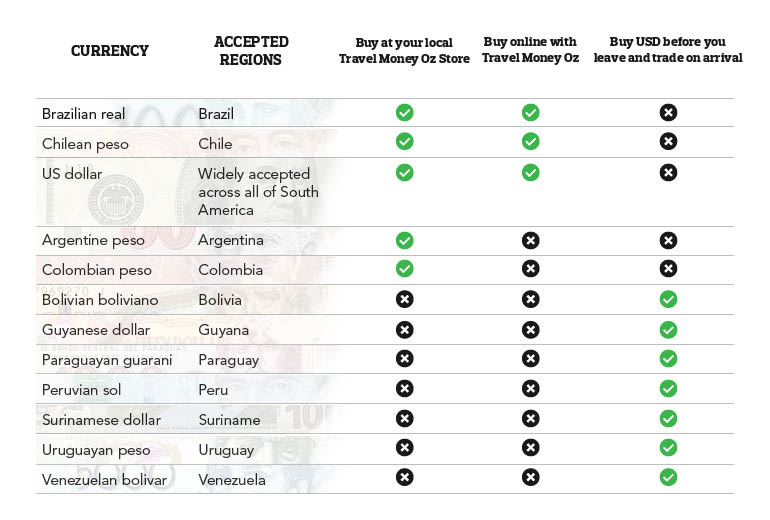Hey there! If you’re planning a trip to Suriname, it’s always a good idea to brush up on some currency tips, especially when it comes to the Suriname Dollar.
In our upcoming article, we’ll dive into everything you need to know about using the Suriname Dollar as a tourist. From exchanging your currency to understanding the current exchange rate, we’ve got you covered. Whether you’re wondering about the best places to exchange your money or the most convenient payment methods to use during your stay, we’ll provide all the details to make your trip to Suriname a breeze. So stay tuned for our article on currency tips for tourists in Suriname!
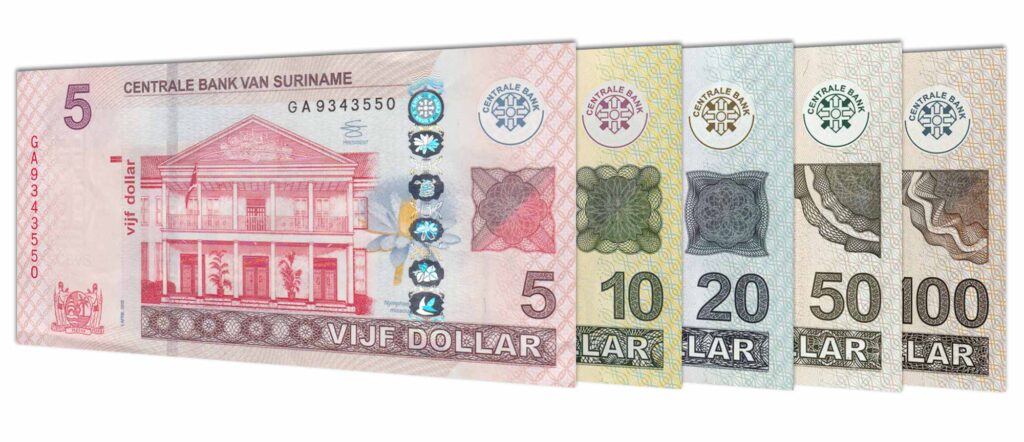
Understanding Suriname Dollar
Welcome to Suriname, a beautiful country in South America known for its vibrant culture, diverse wildlife, and rich history. As a tourist, it’s important to familiarize yourself with the local currency, the Suriname Dollar, to ensure a smooth and enjoyable trip. In this article, we will provide you with valuable information on the Suriname Dollar, including its history, value, and where to obtain it.
What is Suriname Dollar?
The Suriname Dollar (SRD) is the official currency of Suriname, replacing the Surinamese guilder in 2004. It is divided into 100 cents and comes in both paper notes and coins. The currency code for the Suriname Dollar is ‘SRD’, and the symbol used to represent it is ‘$’ or ‘ƒ’.
History of the Suriname Dollar
The Suriname Dollar has a fascinating history that dates back to Suriname’s colonial era. Initially, the Dutch guilder was the currency used in Suriname, as the country was a Dutch colony. However, after gaining independence in 1975, Suriname introduced its own currency, the Surinamese guilder.
Due to financial instability and hyperinflation in the late 1990s and early 2000s, the Surinamese government decided to replace the Surinamese guilder with the Suriname Dollar in 2004. This transition aimed to stabilize the economy and restore confidence in the country’s currency.
Value and Exchange Rate
The value of the Suriname Dollar fluctuates against major international currencies, such as the US Dollar and Euro. As a tourist, it is essential to familiarize yourself with the current exchange rates to effectively manage your finances during your trip.
Exchanging your currency for Suriname Dollars can be done at various financial institutions, including banks, exchange offices, and hotels. It is advisable to compare exchange rates and fees before making any transactions to ensure you get the best value for your money.
Getting Suriname Dollars
Now that you have a basic understanding of the Suriname Dollar, let’s explore how you can obtain this currency during your visit to Suriname.
Exchanging Currency in Suriname
Upon your arrival in Suriname, you will have the opportunity to exchange your currency for Suriname Dollars at various locations. Banks and licensed exchange offices are the most reliable places for currency exchange, as they offer competitive rates and are closely regulated. Ensure that you carry a valid form of identification, such as a passport, when exchanging currency, as it may be required.
It is important to note that exchange offices and banks may have limited operating hours, especially on weekends and public holidays. Therefore, it is wise to plan your currency exchange in advance or ensure you have enough cash on hand during these times.
Using ATMs in Suriname
ATMs, commonly known as ‘Florin machines’ in Suriname, can be found throughout major cities and tourist areas. They offer convenience and accessibility for withdrawing Suriname Dollars using your debit or credit card.
However, it is advisable to inform your bank about your travel plans to Suriname in advance. This helps prevent any unexpected issues with your card being blocked or limited due to suspected fraudulent activity.
Acceptance of Credit Cards
While credit cards are widely accepted in larger establishments, such as hotels, restaurants, and shopping malls, they may not be as commonly used in smaller local businesses. It is always wise to carry some cash with you for smaller purchases and when visiting local markets or street vendors.
Currency Conversion Tips
To make the most of your currency exchange, it’s essential to keep these tips in mind.
Researching Exchange Rates
Before exchanging your currency for Suriname Dollars, it is advisable to research the current exchange rates. This allows you to compare rates offered by different currency exchange providers and ensure you receive the best value for your money.
Beware of Hidden Fees
When exchanging currency or using ATMs, be aware that some providers may charge additional fees, such as transaction fees or currency conversion fees. To avoid any surprises, inquire about these fees beforehand and factor them into your budget.
Carrying Sufficient Cash
Although credit cards are widely accepted in larger establishments, it is always wise to carry some cash with you. In more remote or rural areas, it may be challenging to find ATMs, so having sufficient cash ensures you can pay for essential items or services.
Navigating Suriname’s Money Culture
While understanding the currency is important, it is equally essential to be aware of Suriname’s money culture and local customs regarding payments.
Tipping Etiquette
Tipping is not widely practiced in Suriname, but it is appreciated for exceptional service. In restaurants, a service charge may already be included in the bill, so it is not necessary to leave an additional tip. However, if you receive outstanding service from a tour guide or hotel staff, a small tip as a token of appreciation is customary.
Understanding Local Payment Customs
In local markets or smaller establishments, cash is often the preferred method of payment. Some vendors may not accept credit cards or have card payment facilities, so ensure you have enough cash on hand when purchasing from these places.
Dealing with Counterfeit Currency
Counterfeit currency exists in all countries, and Suriname is no exception. To avoid falling victim to counterfeit money, familiarize yourself with Suriname Dollar security features, such as watermarks, holograms, and security threads. Verify the authenticity of your currency before accepting it, especially when receiving large bills or conducting cash transactions with unfamiliar individuals.
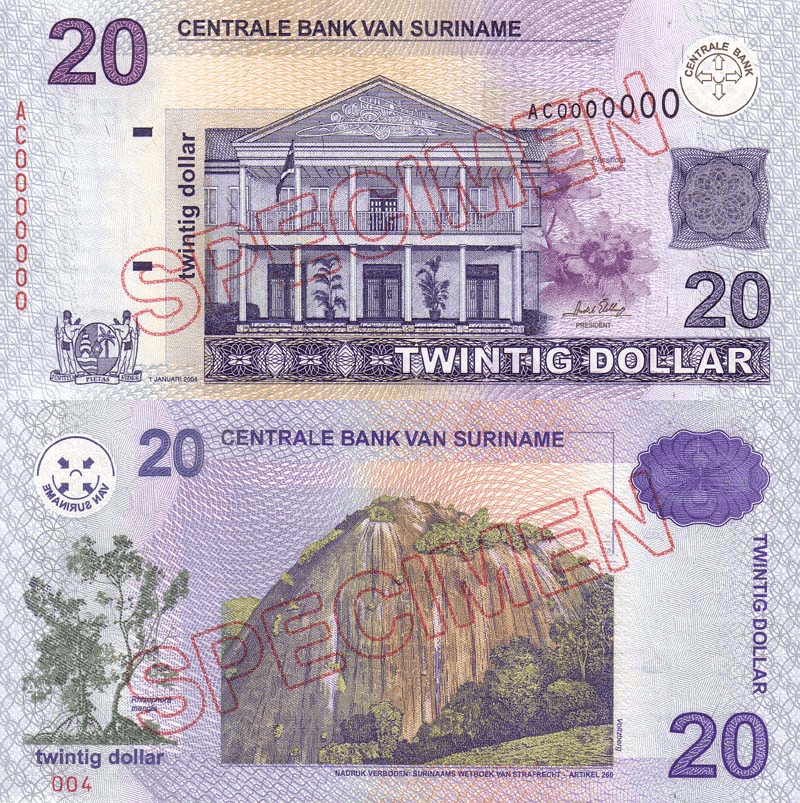
Budgeting for Your Trip
Managing your expenses is crucial for a successful and worry-free trip to Suriname. Here are some tips on budgeting for your visit.
Estimating Expenses in Suriname
Before your trip, research the average costs of accommodation, food, transportation, and activities in Suriname to get a rough estimate of your daily expenses. This allows you to budget accordingly and ensures you have sufficient funds for your entire stay.
Tips for Saving Money
To minimize your expenses, consider staying in budget accommodations or guesthouses instead of luxury hotels. Additionally, opting for local eateries or street food stalls can be more affordable and offer a chance to experience authentic Surinamese cuisine.
Managing Expenses
Keep track of your spending throughout your trip by maintaining a detailed record of your expenses. This helps you identify any overspending or areas where you can cut back, ensuring you stay within your budget.
Safety and Security Concerns
While Suriname is generally a safe country for tourists, it is essential to take precautions to protect your money and valuables during your visit.
Protecting Your Money
Carry your money in a secure location, such as a money belt or a concealed pouch, to minimize the risk of theft. Distribute your cash in different places on your person or in your luggage, ensuring you have a backup in case of an emergency.
Staying Alert to Pickpockets
As with any tourist destination, be aware of your surroundings and remain vigilant against pickpockets. Keep your belongings close to you, especially in crowded areas, and avoid displaying large amounts of cash or valuable items that may attract unwanted attention.
Safekeeping Valuables
If you are staying in accommodations that provide a safe or locker, utilize these facilities to secure your valuables when you are not using them. Additionally, it is advisable to photocopy or digitally scan important documents, such as your passport and travel insurance, and keep them in a secure location.
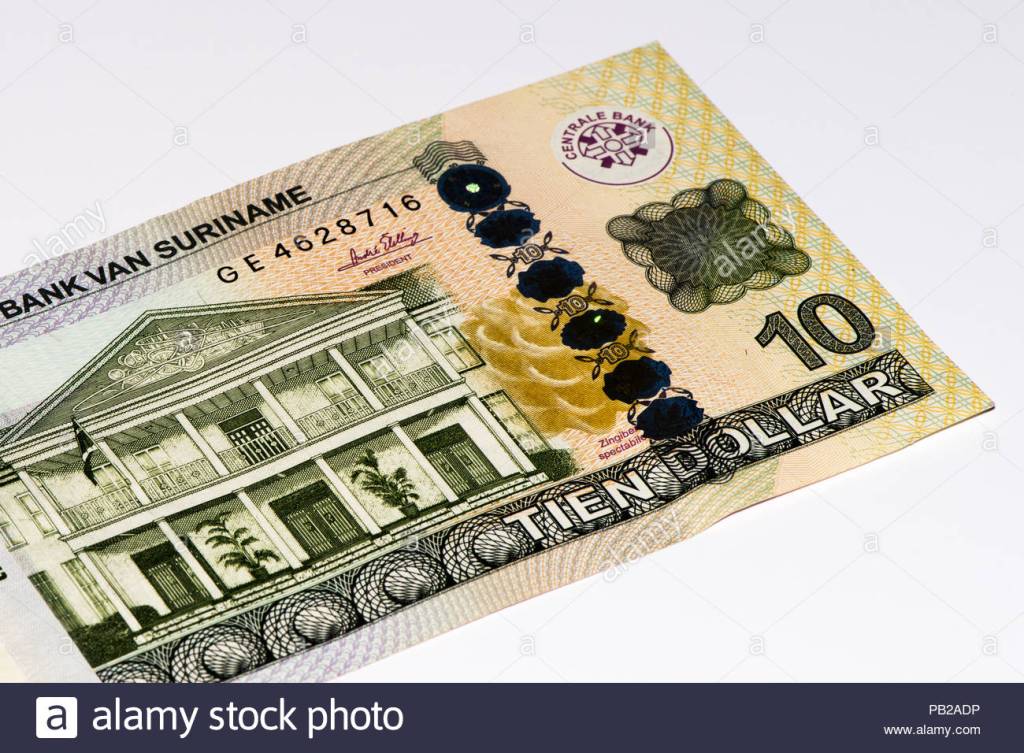
Accessibility and Availability
To ensure a smooth financial experience, it is essential to know where to exchange currency and access banking services during your trip to Suriname.
Where to Exchange Currency
Currency exchange services are available in banks, exchange offices, and some hotels across major cities and tourist areas in Suriname. Banks tend to offer competitive rates and additional services, such as cash advances for credit cards. However, be sure to check their operating hours, as some may have limited hours of operation.
Availability of Suriname Dollars
Suriname Dollars are readily available in Suriname, especially in major cities and tourist areas. However, it is advisable to carry enough cash for smaller purchases or when visiting remote areas where access to ATMs or currency exchange services may be limited.
Accessing Banks and ATMs
Banks and ATMs can be found throughout Suriname, particularly in major cities and tourist areas. However, be aware that some ATMs may have withdrawal limits or additional fees imposed by your bank. It is advisable to inquire about these details before making any transactions.
Understanding Suriname’s Economy
To gain a deeper understanding of the Suriname Dollar and its significance, let’s explore some essential aspects of Suriname’s economy.
Overview of Suriname’s Economy
Suriname’s economy is heavily reliant on natural resources, including bauxite, gold, and oil. Agriculture, specifically the production of rice and bananas, also contributes significantly to the country’s GDP. The economic stability of Suriname plays a crucial role in determining the value of the Suriname Dollar.
Factors Influencing the Currency
Various factors, such as inflation, foreign investments, and international trade, can influence the value of the Suriname Dollar. Exchange rates may fluctuate depending on economic conditions and government policies, making it essential for tourists to stay informed about any significant changes that may affect their finances.
Economic Stability
Suriname has experienced periods of economic instability in the past. However, in recent years, efforts have been made to strengthen the nation’s economy and promote stability. These efforts include implementing fiscal reforms, attracting foreign investments, and diversifying the economy to reduce reliance on natural resources.
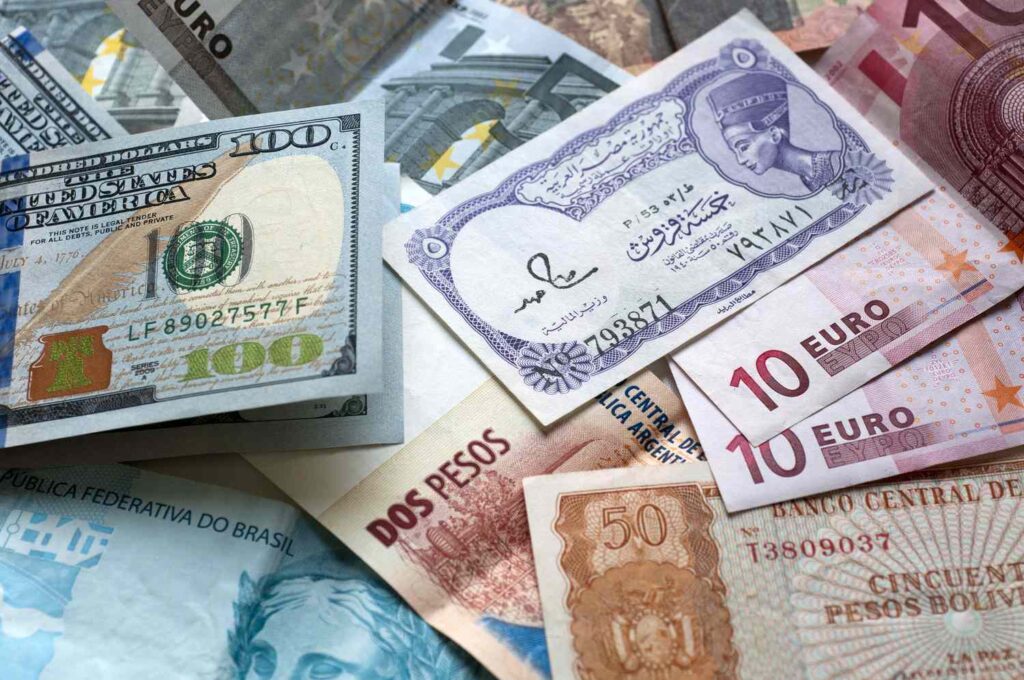
Economic Impact of Tourism
Tourism plays a vital role in Suriname’s economy, contributing to job creation and generating revenue. Understanding the economic impact of tourism can provide valuable insights into the country’s currency exchange dynamics.
Contribution of Tourism to Suriname’s Economy
Tourism is a growing industry in Suriname, attracting visitors from around the world to explore its natural beauty and cultural heritage. The revenue generated from tourism helps support local businesses, promotes infrastructure development, and provides employment opportunities for the local population.
Influence on Currency Exchange
The tourism industry’s contribution to Suriname’s economy can indirectly impact the currency exchange rate. Increased tourism activity may result in a higher demand for Suriname Dollars, potentially strengthening its value against other currencies.
Tourist-Friendly Businesses
To accommodate the needs of tourists, many businesses in Suriname, such as hotels, restaurants, and tour operators, have adopted practices to provide a tourist-friendly experience. These businesses often accept major international credit cards and may offer currency exchange services for the convenience of their guests.
Cultural Awareness
As a tourist in Suriname, it is important to embrace and respect the local culture. Understanding local customs and traditions can enhance your overall experience and foster positive interactions with the local community.
Learning About Local Customs
Suriname is a culturally diverse country, with influences from various ethnic groups, including the Indigenous, Creole, Hindustani, and Javanese communities. Taking the time to learn about the customs and traditions of these groups can help you gain a deeper appreciation for the country’s cultural heritage.
Respecting Local Traditions
Respect for local traditions is essential when visiting Suriname. This includes refraining from behaviors that may be considered disrespectful or offensive, such as wearing revealing clothing in religious or sacred sites.
Interacting with Locals
Surinamese people are known for their warm hospitality and friendly nature. Engaging in polite and respectful interactions with locals can open doors to unique cultural experiences and meaningful connections.
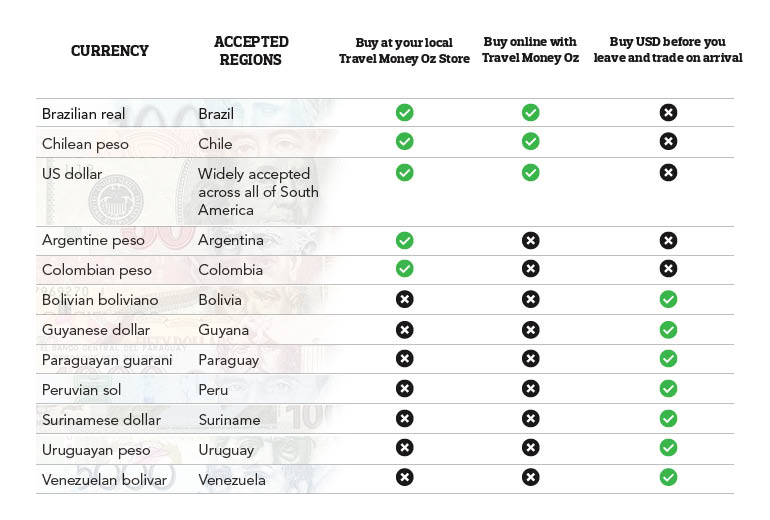
Language Barriers
Suriname is a multilingual country, with Dutch being the official language. It is important to consider potential language barriers and make an effort to communicate effectively during your visit.
Commonly Spoken Languages
Dutch is widely spoken and understood in Suriname, particularly in urban areas. However, various local languages, such as Sranan Tongo, Hindustani, Javanese, and English, are also spoken by different ethnic groups.
Useful Phrases for Communication
Learning a few basic words and phrases in the local language can go a long way in enhancing your interactions with locals. A simple “hello” or “thank you” in Sranan Tongo, for example, can make a positive impression and show your respect for the local culture.
Language Assistance
In case of language difficulties, there are translation apps and services available to help bridge the communication gap. Additionally, many Surinamese people, especially those working in the tourism industry, have a basic understanding of English and can assist you with any language-related issues.
Tourist-Friendly Services
Suriname offers a range of tourist-friendly services to ensure a comfortable and enjoyable visit.
Hotels and Accommodation
Suriname has a variety of accommodation options to suit different budgets and preferences. From luxury hotels in the capital city of Paramaribo to eco-lodges deep in the rainforest, there is something for every type of traveler.
Restaurants and Dining Options
Suriname’s culinary scene is a reflection of its diverse cultural heritage. From street food stalls serving tasty local dishes to upscale restaurants offering international cuisine, you can indulge in a wide range of dining experiences during your stay.
Transportation Facilities
Getting around in Suriname is relatively easy, thanks to a well-connected transportation network. Taxis and ridesharing services are available in major cities, and buses offer affordable transportation options for both short and long distances.
Exploring Suriname’s Attractions
Suriname is a treasure trove of natural wonders and cultural landmarks. Here are some must-visit attractions to include in your itinerary.
Must-Visit Tourist Destinations
Paramaribo, the capital city, is a UNESCO World Heritage site known for its beautiful colonial architecture. Other popular destinations include Brownsberg Nature Park, where you can explore the rainforest and enjoy breathtaking views, and Galibi, a coastal village famous for its sea turtle nesting grounds.
Outdoor Activities and Adventures
Suriname offers a plethora of outdoor activities for adventure enthusiasts. Trekking through the rainforest, kayaking along scenic rivers, or embarking on a wildlife safari are just a few of the exciting adventures that await you.
Cultural and Historical Sites
Immerse yourself in Suriname’s rich history and cultural heritage by visiting historical sites such as Fort Zeelandia and the Maroon villages along the Suriname River. These sites offer a glimpse into the country’s past and the traditions of its diverse ethnic communities.
Conclusion
As you prepare for your trip to Suriname, understanding the Suriname Dollar and familiarizing yourself with its value, exchange rates, and local customs is crucial for a smooth and enjoyable experience. By following the currency tips provided in this article and embracing the local culture, you will be well-prepared to navigate Suriname’s vibrant economy and make the most of your visit. Enjoy your time in Suriname and have a fantastic trip!
